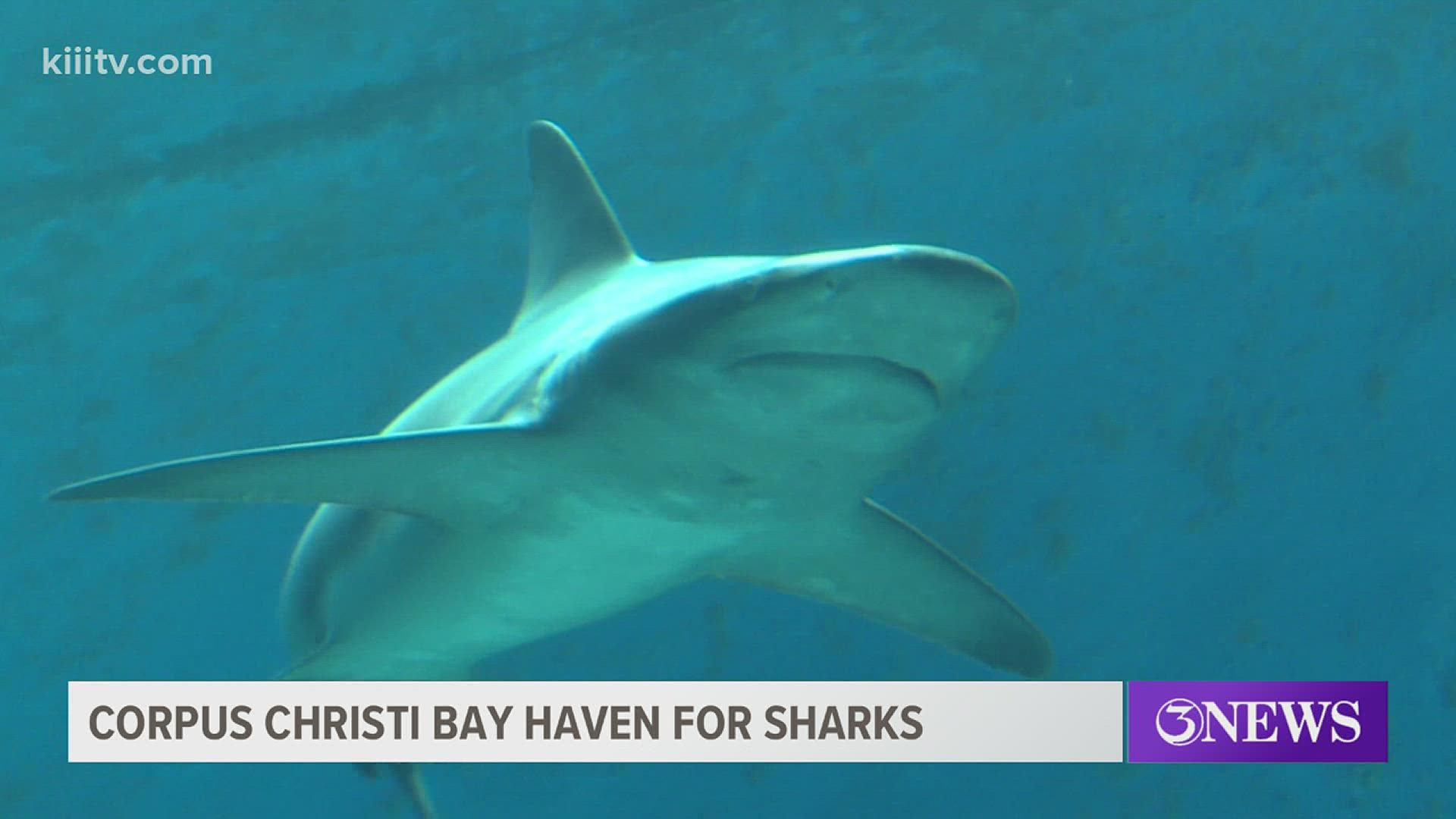CORPUS CHRISTI, Texas — Research at Texas A&M University-Corpus Christi shows that the bay has at least seven different species of sharks living in it.
After more than five years of research, scientist now have an idea why so many sharks use the Corpus Christi Bay as their breeding ground.
According to Associate Professor David Portnoy at TAMUCC's Department of Life and Sciences, his love of studying marine life started over a decade ago. His project -- studying the Corpus Christi Bay as a nursery for sharks -- began in 2015.
Portnoy's study includes sharks ranging from hammerheads all the way to spinner sharks.
"The females may be running all the way into the bay or they may be pupping sort of at the inlet, but there may be large animals here," Portnoy said. "People have to realize that statistically the chances of being attacked by a shark are very close to zero."
Doctoral students like Dominic Swift traveled all the way from England to get involved in Portnoy's aquatic research.
"Growing up in England, we didn't have many experiences handling sharks and getting into these kind of locations," Swift said. "So for me that's been a big factor."
Portnoy and his team said the most rewarding part of their research is helping to preserve the sharks and other aquatic life that reside in the bay.
"The bay is full of many species of sharks that many people who live here wouldn't know about necessarily," Swift said. "So having that outreach is really important, because it increases awareness and increases interest in the work that we're doing, and in the animals in the bay."
Overall, Portnoy views his research as a way to aid in the long-term conservation of aquatic species in coastal waters.
"There's a value in having these long-term surveys," Portnoy said. "To make sure that you know the bay is still functioning as an appropriate habitat for these species that really need it as an important part of their lifecycles."
With help from the Texas Sate Aquarium, Portnoy and his team have been able to tag seven species of sharks along with three species of stingrays.
Want to send us a news tip?
Put your name and contact information below so we can get in touch with you about your story should we have questions or need more information. We realize some stories are sensitive in nature. Let us know if you'd like to remain anonymous.
If you do not have a photo/video to submit, just click "OK" to skip that prompt.

